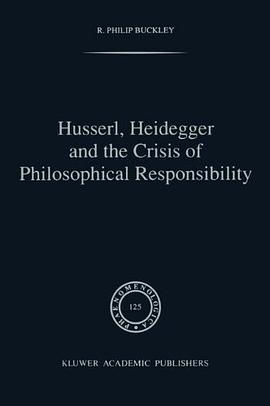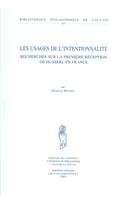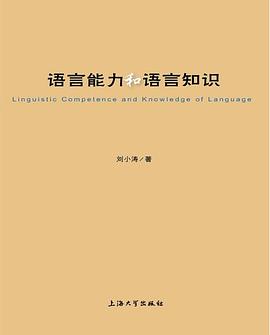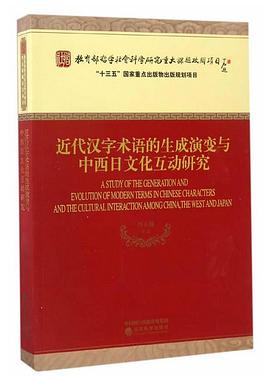

具体描述
This volume sheds light upon the omnipresent discussion of 'crisis' in our times by returning to the thought of the two philosophers upon which much of this talk is consciously (or unconsciously) based, namely, Edmund Husserl and Martin Heidegger. By tracing the narrative of the 'crisis' from Husserl's early treatment of arithmetic and logic through to Heidegger's meditations on the essence of technology, the author not only proposes a unified reading of both Husserl's and Heidegger's work, but points to important elements of the often underplayed continuity between these phenomenologists. At the same time, the concept of 'crisis' also illustrates the difference between Husserl and Heidegger. Though both define the crisis as one of 'forgetting', and both view this 'forgetting' as a matter of philosophical responsibility, essential divergence emerges in their interpretation of this phenomenon. Three questions uncover these points of convergence and divergence. First, does not the 'forgetfulness' reveal itself as a type of felix culpa, a necessary decay that now reveals itself in a positive light, indeed, as the precondition of history itself? Second, what is presupposed when the subjects is held responsible for forgetting? Third, what are the political consequences of such 'crisis'-philosophy? This last question allows access not only to hidden political aspects of Husserl's thought, but opens a further perspective for considering Heidegger's overt political activities.
作者简介
目录信息
读后感
评分
评分
评分
评分
用户评价
这本书给我带来的冲击,更多地体现在对“我们如何存在于这个时代”这一问题的重塑上。它不像许多当代哲学著作那样热衷于构建宏大的新体系,反而更倾向于一种“诊断性”的工作。作者似乎在努力揭示隐藏在学术规范和日常惯例之下的某种根本性的“失职”或“缺位”。我发现自己开始不自觉地用书中的视角去审视周围的一切——无论是媒体的表达方式,还是公共领域的讨论生态。这便是我认为一本优秀哲学著作的最高标准:它不仅能解释世界,更能改变你观察世界的方式。在阅读过程中,我体验到一种深刻的智识上的“不安”,这种不安并非源于困惑,而是源于被一种更深刻的真实性所触及后,旧有认知框架开始瓦解时的震颤。这是一种严肃且必需的智识历练。
评分从整体结构来看,这本书的组织脉络非常清晰,像是一部精心编排的交响乐。它似乎从一个宏大的历史背景切入,逐渐收束到对具体哲学家的思想资源的细致挖掘,最终导向对当下处境的批判性反思。我特别欣赏作者在处理那些复杂的思想史脉络时所展现出的平衡感——既没有沦为简单的思想综述,也没有过度陷入个人诠释的泥潭。他总能在关键时刻跳脱出来,用一种局外人的视角来审视这些巨匠的贡献与局限。读到中段时,我感觉自己仿佛置身于一个思想的辩论场中,作者作为那个高明的裁判,公正地引导着不同的声音进行碰撞与交锋。这种处理方式,使得整本书的论述充满了动态的美感,而不是静态的知识堆砌。它成功地将“历史回顾”与“现实关怀”紧密地编织在了一起,让历史的重量成为了批判当下的有力支点。
评分这本书的封面设计得非常引人注目,那种深沉的蓝色调和那种略显粗粝的字体排版,一下子就将人带入了一种严肃的哲学思辨氛围之中。我记得我是在一家小小的二手书店里偶然翻到它的,当时并没有对内容有太多期待,只是觉得这个标题本身就充满了挑战性——“危机”与“责任”这两个词,在哲学领域总是能激起最深刻的共鸣。 拿到书后的第一感觉是它的分量感,纸张的质地和装帧的厚重,都暗示着里面承载的思考绝非肤浅之作。阅读之前,我特意去了解了一下作者的研究背景,这对我理解其论述脉络至关重要。我特别欣赏作者在序言中展现出的那种对当代学术语境的敏锐洞察力,他似乎在用一种近乎考古学家的耐心,试图挖掘那些被主流哲学思潮所掩盖的深层结构性问题。这种开篇的姿态,让我立刻决定要投入时间去仔细研读。它不仅仅是一本学术专著,更像是一封写给当代知识分子群体的、措辞严谨的“警示录”,迫使读者停下日常的匆忙,直面那些最根本的形而上学困境。
评分要说阅读体验,这本书绝对属于那种需要全神贯注,甚至需要备好笔记本和荧光笔的类型。它不适合碎片化阅读,每一次拾起,都意味着要重新进入一个高度集中的心智状态。其中引用和参照的文献之广,也让我受益匪浅,它像一座桥梁,连接着我知识体系中看似孤立的几个部分。每读完一章,我都会感到一种智力上的“充盈”,仿佛思维的肌肉得到了有效的锻炼。这本书的价值在于,它没有提供简单的答案或安慰性的结论,而是提供了一套更精细、更有力的工具箱,用于拆解和分析那些萦绕不去的现代困境。它无疑会成为我未来很长一段时间内,进行严肃思考时会反复参考和回味的一部重要文本,其影响是深远且潜移默化的。
评分这本书的行文风格极其克制,但字里行间又透着一股不容置疑的自信和力量。作者似乎擅长于在看似平铺直叙的论证过程中,突然抛出一个石破天惊的论断,让你不得不猛地停下来,重新审视自己之前习以为常的观念。我印象最深的是他对某个关键概念进行辨析的章节,他没有满足于简单的定义,而是通过一系列精妙的对比和反驳,将这个概念的内涵和外延拓宽到了一个全新的维度。阅读过程就像是在迷雾中攀登一座陡峭的山峰,每向上一步都需要极大的心智投入,但一旦到达一个观景点,那种豁然开朗的感觉是无与伦比的。它要求读者不仅要理解作者的逻辑推演,更要跟上他那种独特的、环环相扣的思维节奏。我发现自己常常需要反复阅读某一段落,不是因为晦涩难懂,而是因为其密度实在太高,需要时间让那些思想的颗粒在脑海中充分沉淀和聚合。
评分 评分 评分 评分 评分相关图书
本站所有内容均为互联网搜索引擎提供的公开搜索信息,本站不存储任何数据与内容,任何内容与数据均与本站无关,如有需要请联系相关搜索引擎包括但不限于百度,google,bing,sogou 等
© 2026 book.wenda123.org All Rights Reserved. 图书目录大全 版权所有




















